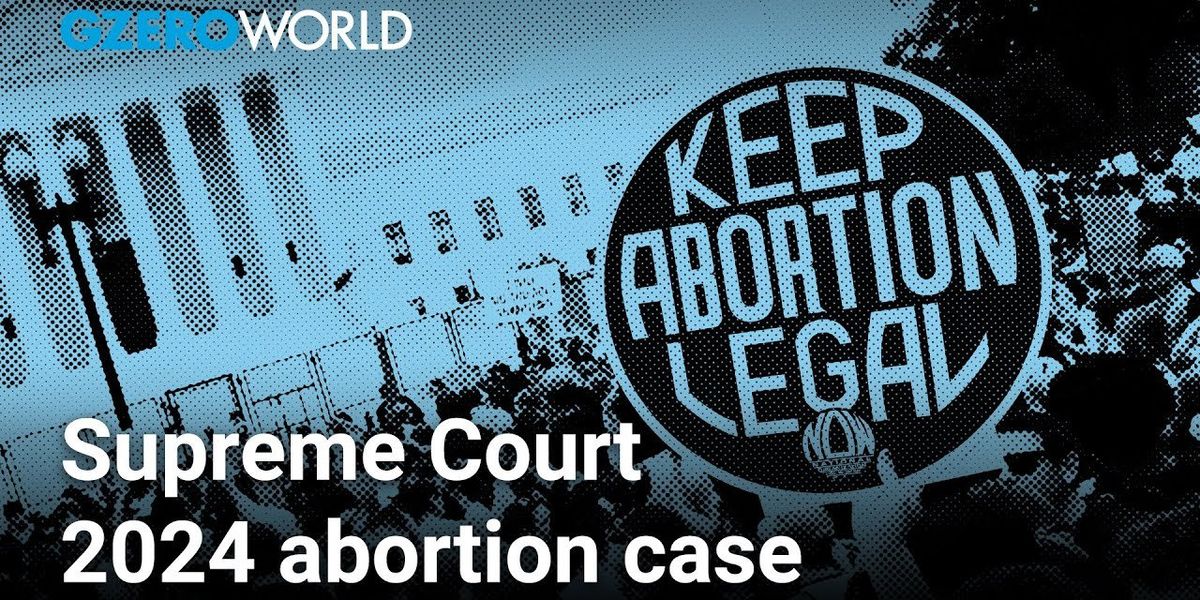Trending Now
We have updated our Privacy Policy and Terms of Use for Eurasia Group and its affiliates, including GZERO Media, to clarify the types of data we collect, how we collect it, how we use data and with whom we share data. By using our website you consent to our Terms and Conditions and Privacy Policy, including the transfer of your personal data to the United States from your country of residence, and our use of cookies described in our Cookie Policy.
{{ subpage.title }}
Supreme Court will rule on abortion rights once again. What’s at stake now?
“The [abortion pill case] affects women across the country, it’s not state by state,” Bazelon stresses, “It’s the FDA’s authority to allow pills to be shipped everywhere and other rules that have made abortion pills more accessible for women in blue as well as red states.”
A group of doctors is challenging the Food and Drug Administration's authority to allow doctors to prescribe abortion pills without an in-person visit with a patient and for those pills to be sent through the mail. Bazelon explains that this group of plaintiffs is unusual in that they haven’t yet experienced direct harm from the FDA’s ruling, which you usually need to prove has happened before a case makes it all the way up to the highest court in the land. Four female justices are also on the bench this year, a historic high-water mark. Could that make a difference in the way justices rule on either case?
Catch GZERO World with Ian Bremmer every week on US public television (check local listings) and online.
- Podcast: (Un)packing the Supreme Court with Yale Law's Emily Bazelon ›
- Who polices the Supreme Court? ›
- Abortion in Florida: banned and on the ballot ›
- The Graphic Truth: Abortion laws around the world ›
- Why do Americans get so worked up about abortion? ›
- Should we rethink the global aging crisis? - GZERO Media ›
- Why the world is facing a population crisis - GZERO Media ›
The Arizona for Abortion Access news conference at the law offices of Coppersmith Brockelman in Phoenix.
Arizona courts order near-total abortion ban
The court rejected arguments that it should uphold the 15-week ban the state has followed since the fall of Roe v. Wade in 2022, instead deciding to uphold a more restrictive law passed before Arizona was even a state. When it goes into effect in 15 days, abortion will be a felony punishable by two to five years in prison for anyone who performs or helps a woman obtain one. It makes no exceptions for instances of rape or incest.
It comes a week after a pro-choice group obtained enough signatures last week to put an amendment to enshrine abortion rights in the state’s constitution on the ballot in November. This all but ensures that abortion – a major motivating issue for Democratic voters – will play a big role in how the swing state votes in 2024.
